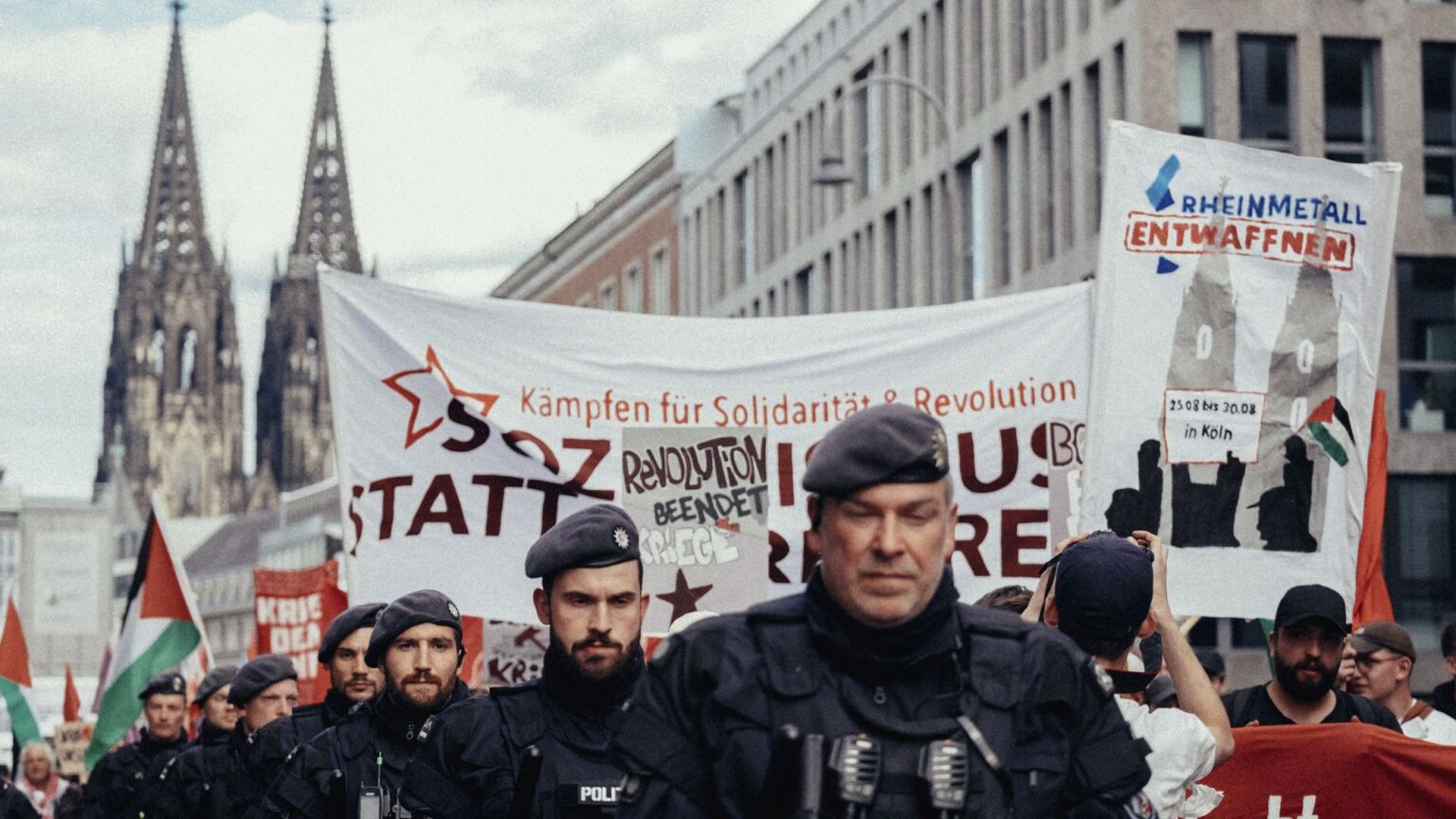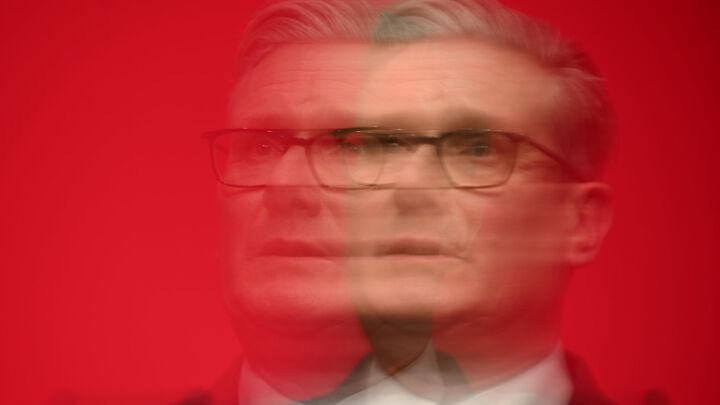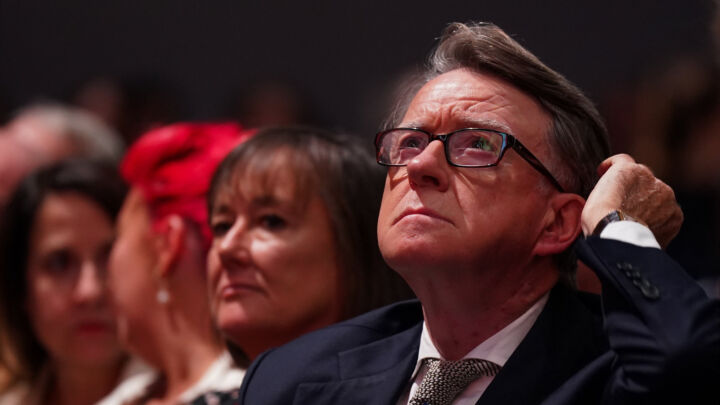The German parties’ pact to silence criticism of immigration
In Cologne, mainstream parties have agreed not to discuss the No1 issue in German politics.

Want unlimited, ad-free access? Become a spiked supporter.
Every mainstream party running in Cologne’s local elections this month has agreed not to criticise immigration. Those bound by the so-called fairness agreement say they will not depict asylum seekers or migrants in a ‘negative’ light. Candidates are also warned not to ‘exploit’ migration as an electoral issue.
News of the agreement has largely been met with bemusement. Germany’s national tabloid, Bild, called it ‘bizarre’. The Telegraph in the UK described it as handing the Alternative for Germany (AfD) party – the only party not to have signed up – a ‘leg up’. Indeed, it’s hard not to be perplexed. After all, why would established parties hand their biggest rival a monopoly over one of the electorate’s biggest concerns?
This self-censorship is actually nothing new. Indeed, the agreement has actually been in place since 2017, and was simply renewed this month. The real story here is that the agreement is finally crumbling. Populist pressure has grown so strong that, even in Cologne, a city long celebrated as a bastion of progressive politics, politicians can no longer maintain their silence on immigration.
The first chip to fall in the ‘fairness’ coalition was the Christian Democratic Union (CDU). In late August, a CDU candidate distributed a leaflet opposing a new asylum shelter in the inner-city district of Agnesviertel. ‘No to large-scale accommodation for a safe, liveable borough’, the leaflet read. Predictably, refugee groups and other mainstream parties cried foul, accusing the CDU of violating the sacred pact. But the local party leadership stood firm. ‘We will not retract any of these statements’, said district chairwoman Serap Güler. Housing 500 refugees in a neighbourhood ‘with enough challenges and problems’, she argued, was ‘not helping people’.
Establishment parties behind the fairness agreement have every reason to keep the debate around immigration firmly under wraps. After all, it was in Cologne where numerous women were sexually assaulted by Syrian and other Middle Eastern men – most of whom had recently arrived in the country – in the infamous New Year’s Eve assaults of 2015/16. Then too, the local establishment closed ranks to prevent the full picture being revealed to the public. The offenders were ‘hard to identify’, insisted the police. The debate on immigration has been characterised by the same dishonesty and evasiveness ever since.
Properly understood, the purpose of the 2017 fairness agreement was not to prevent ‘negative depictions’ of migrants as much as to prevent ‘negative depictions’ of the mainstream parties. Instead of addressing the problems unleashed by uncontrolled migration – such as Cologne’s growing, unintegrated Islamic enclave, and a sense of cultural dislocation in a city dominated by its 12th-century cathedral – the establishment decided to muzzle all debate.
The fairness agreement is now beginning to look like a colossal own goal on behalf of Cologne’s establishment. The only party to benefit from it appears to be the AfD. For years, the AfD was an afterthought in Cologne. Low turnout – just over 50 per cent in 2020, and 40 per cent in 2015 – allowed the establishment parties to cling to power. No longer. The AfD has doubled its support, and is currently polling at over 10 per cent. Clearly, the CDU now believes it cannot win by parroting the establishment line on multiculturalism and mass immigration. Hence the first crack in the once-solid pact.
This should be welcomed by any democrat. The fairness agreement was always a cynical euphemism. It was about silencing voters and infantilising citizens, who were considered too ignorant and too prone to ‘negative’ thoughts to be deserving of the truth. It was a textbook example of how elites use censorship to cover for their own failures.
The bad news, however, is that the agreement still exists. The threat to open debate has not gone away. If the populist challenge fails to make a dent in these elections, Cologne’s establishment is likely to see this as a vindication – not only of their censorious instincts, but of their destructive policies, too.
On 14 September, Cologne’s voters will decide whether to reward those who have tried to silence them, or whether to remind their leaders that politics belongs to the people. Let’s hope the spirit of democracy returns.
Sabine Beppler-Spahl is spiked’s Germany correspondent.
£1 a month for 3 months
You’ve hit your monthly free article limit.
Support spiked and get unlimited access.
Support spiked – £1 a month for 3 months
spiked is funded by readers like you. Only 0.1% of regular readers currently support us. If just 1% did, we could grow our team and step up the fight for free speech and democracy.
Become a spiked supporter and enjoy unlimited, ad-free access, bonus content and exclusive events – while helping to keep independent journalism alive.
———————————————————————————————————————————–
Exclusive January offer: join today for £1 a month for 3 months. Then £5 a month, cancel anytime.
———————————————————————————————————————————–
Monthly support makes the biggest difference. Thank you.









Comments
Want to join the conversation?
Only spiked supporters and patrons, who donate regularly to us, can comment on our articles.